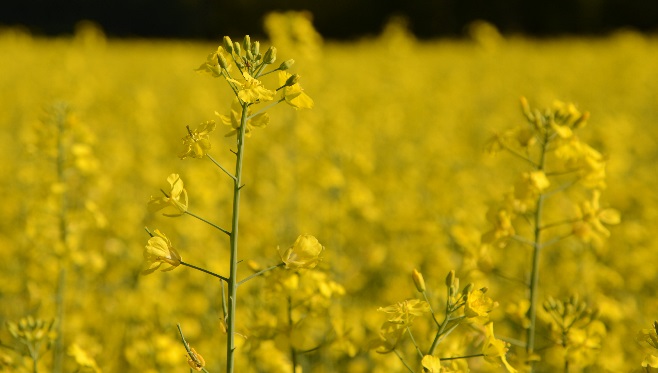Derogations in Finland concerning neonicotinoids were justified

The European Food Safety Authority (EFSA) has, upon request by the European Commission, assessed the derogations for pesticides granted in Finland in 2017 concerning active substances belonging to neonicotinoids.
In 2013 the European Commission limited the use of three active substances of the group neonicotinoids (clothianidin, thiamethoxam and imidacloprid) for crops that were not considered relevant in terms of honey bees and other pollinators. In this connection the coating of the seeds of turnip rape (Brassica rapa var. oleifera) and rapeseed (Brassica napus var. oleifera) by these substances was also prohibited.
The derogations granted in Finland in 2017 allow the use of two pesticides for the treatment (coating) of spring-sown turnip rape and spring-sown rapeseed. The substances containing clothianidin and thiamethoxam are used, in particular, to prevent flea beetles (Phyllotreta undulata and Phyllotreta vittala) that harm young seedlings.
The European Commission requested EFSA to examine whether the derogations granted in different countries were truly necessary due to risks that could not be reasonably prevented by other means. The Finnish authorities submitted the information requested by EFSA concerning the derogations and the data and analyses they were based on.
The assessment by EFSA proved that in Finland there are no other authorised pesticides for four crop/pest combinations.
In the assessment non-chemical options to substitute for the substances used were also considered. Three non-chemical plant protection methods exist, but they were considered inefficient or poorly efficient. The methods are delayed sowing, under-sowing, and use of a larger amount of seed. E.g. delayed sowing may lead to a situation where the plants do not mature early enough, and there was also not information available on any wider use of these methods.
This means that there is no feasible and authorised non-chemical way to prevent flea beetles in spring-sown turnip rape and spring-sown rapeseed.
EFSA’s conclusion was that the derogations granted in Finland were scientifically justified.
Inquiries at the Ministry of Agriculture and Forestry:
Jaana Husu-Kallio, Permanent Secretary, tel. +358 400 291 910, firstname.lastname@mmm.fi
Tove Jern, Senior Agricultural Officer, tel. +358 295 162 318, firstname.lastname@mmm.fi



